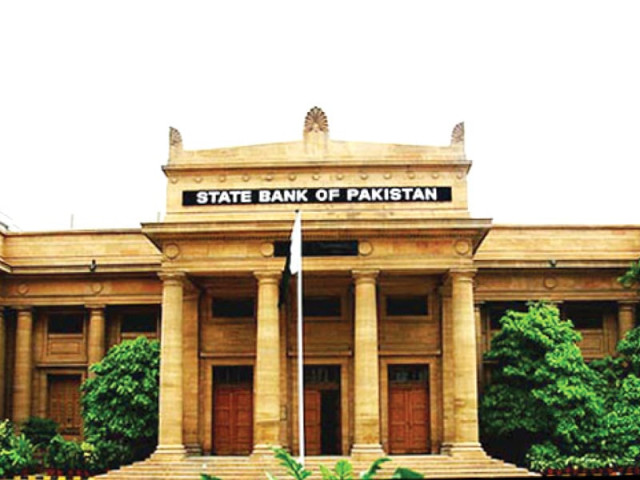SBP – a pillar of support for business
Central bank responded aggressively to challenges, shielded economy through timely measures

Pakistan has been acknowledged globally for its fast economic recovery from the Covid-19 pandemic compared to peer economies and even before the developed countries.
Among others, the central bank and its leadership responded aggressively to the unfolding challenges during the pandemic and shielded the economy through timely measures and initiatives.
The Express Tribune conducted a brief survey to find out whether the State Bank of Pakistan (SBP) took proactive measures with Governor Reza Baqir at the helm.
Different stakeholders said the institution, through its team, took a number of measures to strengthen the economy in order to absorb shocks, fight against odds and remain resilient.
They believe institutions are established or destroyed through the performance of their teams, and putting the right person at the top is a must to motivate the team members.
Baqir is a capable governor of the central bank. He listens to the stakeholders including bankers and businessmen with an open mind and consults on the emerging issues and challenges with his deputy governors, economists and other team members to come up with possible solutions.
They specially praised the central bank’s active role in digitalising the financial sector and the economy at large. Though digitalisation gained traction during the pandemic, fast recovery of the economy would not have been possible without availability of prerequisite infrastructure since pre-Covid times.
“Dr Reza Baqir is an extremely thoughtful, pro-active and forward-looking governor of the State Bank,” said Pakistan Stock Exchange CEO Farrukh H Khan in comments to The Express Tribune.
Under his leadership, the SBP took a number of important steps to stabilise the economy and move it towards growth trajectory, at a time when Pakistan was beset with numerous challenges, including the coronavirus pandemic, he said.
While dealing with the crisis, he also undertook a number of important long-term initiatives, which Khan believes will be transformative for Pakistan’s financial sector.
“The initiatives include widening the digital landscape through RAAST (an instant and easy payment) system. Another step in this direction is the Roshan Digital Account facility for overseas Pakistanis. This is a significant and important step that enables, for the first time, overseas Pakistanis to seamlessly open online bank and brokerage accounts.
“This is also a huge step forward in closer collaboration between the banking sector and capital markets, which is important for Pakistan’s economic development. I would like to acknowledge the governor’s interest and leadership in this area.”
Pakistan Business Council CEO Ehsan Malik said, “The governor listens to the business and the bank is open to changes in its policies. This is refreshing. An example is the recognition that monetary policy is not an appropriate tool to control supply-led inflation.”
He said, “The SBP has been a pillar of support for preserving jobs and helping business in managing the impact on cash flow arising from Covid. At the same time, the SBP has provided business an opportunity to invest through the 10-year fixed-rate TERF (Temporary Economic Refinance Facility).
“I am particularly impressed by the way the bank is moving to digitalise the economy and to facilitate greater global linkage of our exporters by changing the policies affecting investment in brands and companies abroad.”
AHL Chairman Arif Habib said recently the central bank decision to cut the benchmark interest rate by 625 basis points between March and June 2020 to 7% provided a big room for the growth of businesses and the overall economy.
“The reduction in interest rate has lowered the cost of borrowing for corporates. It has enabled businesses to recover fast from the Covid-19 impact and become profitable again…and helped the economy and stock market to grow.”
Among many other steps, the central bank has recently taken a policy initiative to increase women participation in financial inclusion, banking sector and wellbeing of the economy.
For the purpose, the SBP has launched consultation on the subject “Banking on Equality Policy: Reducing the Gender Gap in Financial Inclusion”.
“If women are excluded, we do suffer at the macroeconomic level,” SBP’s Deputy Governor Sima Kamil remarked while speaking at a webinar.
The central bank and its leadership have been widely acclaimed for liberalising the exchange rate mechanism by letting market forces decide the rupee-dollar parity in the interbank market since the third quarter of 2019.
The market-based exchange rate is based on the demand and supply of dollars in the system. “This is the beauty of the newly implemented market-based exchange rate mechanism that the rupee is moving both ways against the US dollar,” said Exchange Companies Association of Pakistan President Malik Bostan.
Baqir has also been a key member of the prime minister’s economic team. He was among the officials who played a pivotal role in acquiring the International Monetary Fund’s (IMF) loan facility worth $6 billion in May 2019 to manage the balance of payments.
He is again active in resuming the loan programme which has been on hold since the Covid-19 outbreak in Pakistan in late February 2020.
Other notable measures taken by the central bank include the offer of concessionary loans to the housing and construction sector, hospitals and corporates to help them pay salaries to their staff during the pandemic.
Besides, bank loans worth billions of rupees were deferred or rescheduled to avoid defaults by corporates and households.
The writer is a staff correspondent
Published in The Express Tribune, January 18th, 2021.
Like Business on Facebook, follow @TribuneBiz on Twitter to stay informed and join in the conversation.



















COMMENTS
Comments are moderated and generally will be posted if they are on-topic and not abusive.
For more information, please see our Comments FAQ